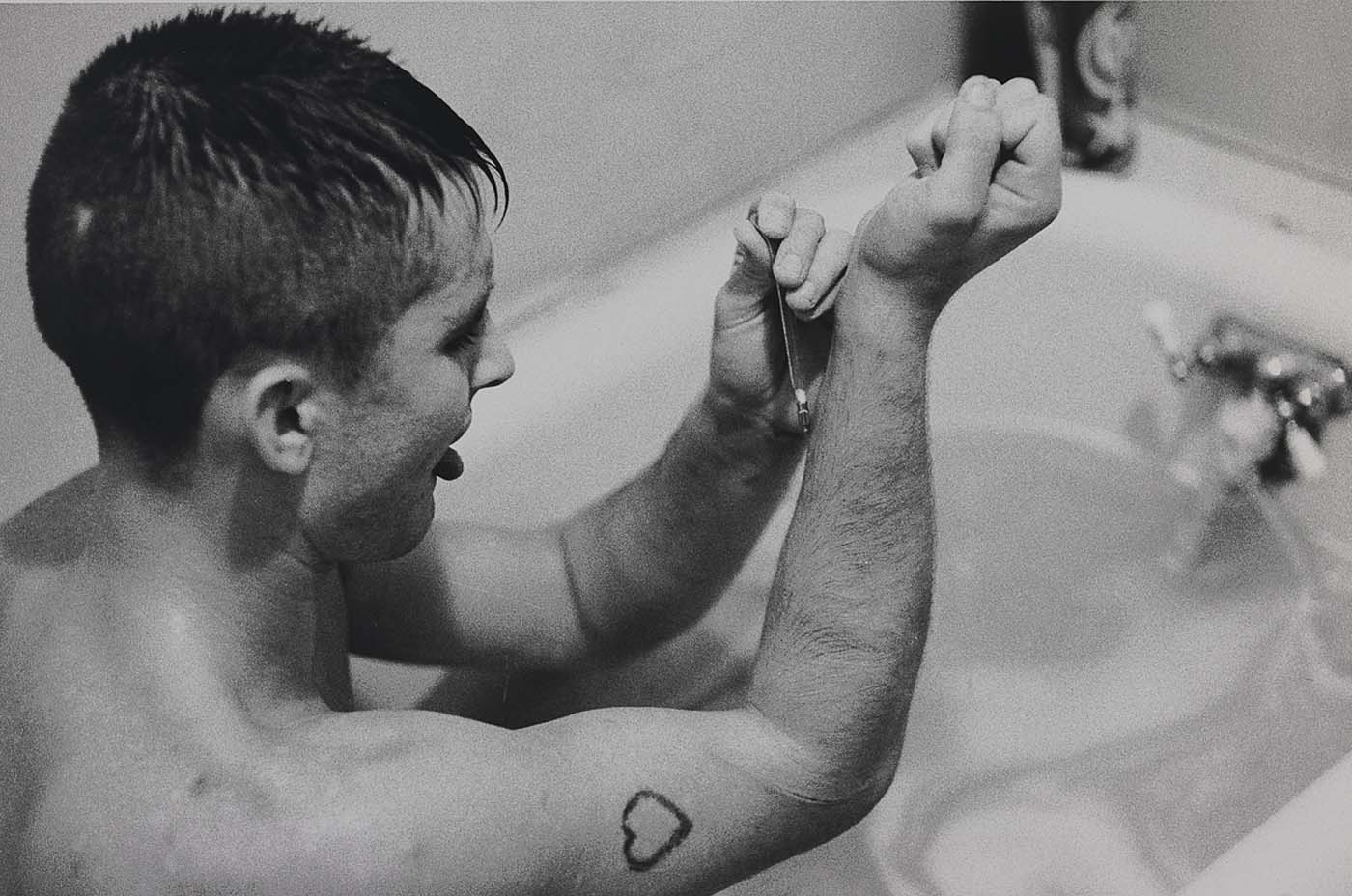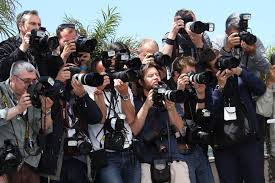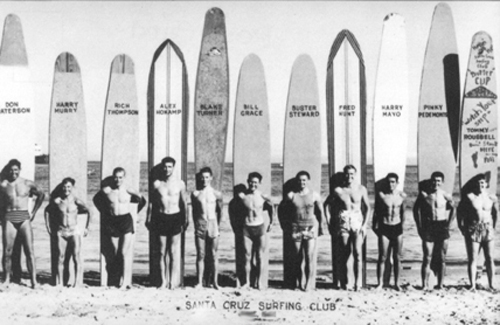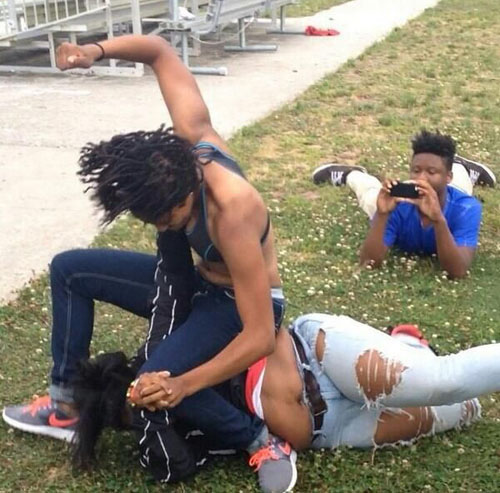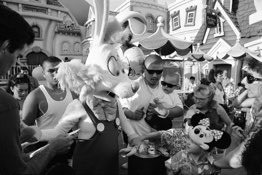
Robert Yager (aka Johnny Rotten), the lead singer of The Sex Pistols, is a freelance photographer that began documenting the lives of various gang members in Los Angeles gang scene in 1991. The most reoccurring gang in his photographs are the Playboys. In addition to his area that focuses on gang lifestyle, he also does work for many celebrities and personal projects. My focus on this article is not on the photography itself, but the content within the photographs. In my research, I noticed that while many of the photographs contain items that are foreign to me. Mentally and physically; many of the occurrences seemed banal or common place. Growing up, one of my better friend’s father was in a faction of the “bloods” gang, and it was interesting to see the compartmentalization of his two lifestyles. One day he would be playing catch with the two of us, and the next he would be tending to his marijuana plants that grew underneath his stairs. It was not until recently I learned that his limp and lack of ability to use is left side was from a lost game of Russian Roulette, and that the tattoos on his knuckles held a large meaning to his past and current lifestyle. I have always assumed that in the life of a gang member, the gang does not allow for a child to grow up doing normal things. However, as seen from my childhood friend, as well as the pictures captured in Yager’s photographs, the gang life continues to dominate aspects of life. Perhaps a gangster is not necessarily a criminal during every hour of every day. I think that It is hard for most citizens to see this split and recognize a single individual as having two very different or distinct roles.
My favorite picture from Yager’s gang collection is “Toontown, Disneyland.” Initially, I saw the picture and laughed. It seems as if the gangsters in the picture are photoshopped it. Their setting does not appear to match their appearance at all. If you look closely at the emotion in the photograph, surprise, fear, and confusion, on all of the “typical” Disneyland goers it is clear they are there. If you think about it rationally, of course they are there! Are their kids not children? Do they not have money? Actually, because of their drug profits they have a plenty of wealth. Who is to say that because they have a certain profession they are not allowed to do “white-collar” activities? While the gangsters are still gangers, for that day, they are seemingly normal people taking their children to Disneyland, but still up to the ridicule and subjection of the people around them.
Photography is my favorite art form. It captures things that are often not captured, or that people may not want to be captured. A look of fear. Perhaps a captured face. Maybe a momentary weakness. It is a contrast to paintings where the emotions of the artists interpretation are true and pure. Yager’s photo “Homeboys” shows this. Think of every single common emotion you associate with gangsters: malice, anger, hatred. If you exam every single face in the picture not one of those is present, instead they are replaced with concentration, boredom, and fatigue. This picture is interesting because both roles are present. In one corner there is a young boy getting a gang tattoo and in the other part of the room someone is ironing a shirt, something as common place as brushing your teeth or getting a haircut. Most people do not see gangsters as ever doing mundane things such as ironing, praying, paying the bills, or parenting; they are seen as the role they are depicted as in the news or media. That is the interesting aspect to Yager’s photography. He depicts things as they really are and captures all of the other aspect of the gangster lifestyle that pop culture does not see. The sorrow of loosing a loved one, of burying someone before they had the chance to get married, the elderly women that is getting painful laser to remove her gang tattoos in an attempt to change her life, or the child getting beaten in (initiated) before he is old enough to grow a mustache. The gang life is glorified in the media. Drugs, sex, and money are the main focus and the actual lifestyle and consequences have no part. To most they are boring and therefore not necessary to document. By focusing on the aspects that have no place in popular culture Yager brings an aspect of true reality (not reality tv) to the idea of the criminal lifestyle and brakes the boundaries between art and crime: capturing crime and turning it into art.

